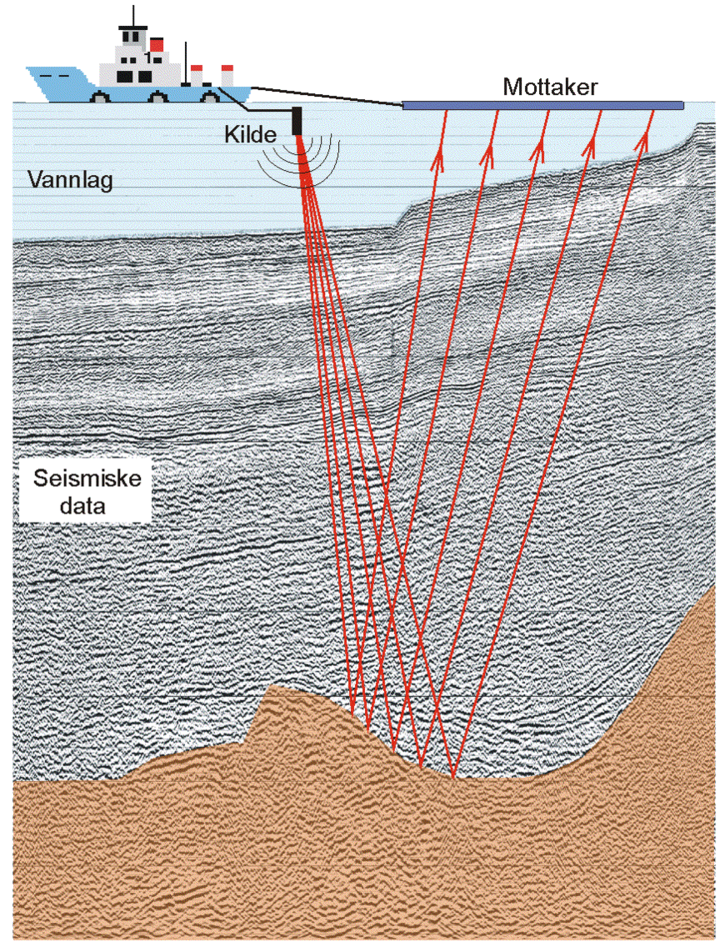All Categories
Featured
Table of Contents
Bachelor's Degree In Geophysics - Degrees & Programs in Lesmurdie Australia 2023

Other possible geophysicist majors that aren't geophysics or geoscience include: Climatic sciences and meteorology Chemical and physical oceanography Earth science Environmental science Hydrology and water resources science Products science By earning any geophysicist degree, and by taking the required geology courses, you should certify for an entry-level position as a geoscientist or geophysicist.
Eventually, students must discover: a branch of geology that takes a look at the various aspects of minerals, including chemical composition, internal crystal structure, and physical properties. the research study of rocks and the processes and conditions that form and transform them in time. There are a couple of subdivisions in this branch of geology, consisting of igneous, metamorphic, and sedimentary rocks.

This field analyzes structural rock features such as cleavage, faults, joints, and small folds. They need to likewise find out the computer system abilities needed to: analyze data produce digital models and maps operate geoscientists' software Trainees need to likewise benefit from all chances to acquire real-world experience. Ambitious geophysicists need to anticipate to hang around knowing: in the classroom in the field in laboratories Certainly, abilities taught in the class are really important for striving geophysicists.
Geophysicist - Job Role - Job Information in Sorrento Australia 2020
Geoscientists invest a lot of their time outside when working in the field, so they must possess "outdoor abilities" like camping and running boats, aircraft, and other cars. Because they spend so much time in remote areas, it's necessary that geophysicists likewise have the physical stamina to bring needed devices on their hikes to areas of research study.
The job uses: a high mean and leading revenues a high rate of individual fulfillment among geophysicists low work tension positive job outlook Additional info on revenues potential and job outlook is detailed below. For students looking to land an entry-level function as a geoscientist or geophysicist, it takes 4 years, or the time required to finish a bachelor's degree in geophysics or an associated discipline.
Some research study positions in geophysics need doctoral degrees. If you prepare to teach at a college or university, you should make a Ph. D. in geophysics or an associated field. The time it takes to make a Ph. D. differs by institution and program, but it normally takes four to 6 years beyond the bachelor's degree.
How A Geophysical Survey Is Crucial To Offshore Wind Farm ... in Midvale Western Australia 2021
Many employers need candidates to have a bachelor's degree in geophysics or a carefully associated discipline for all entry-level positions. And, in many cases, companies need a master's degree. As a result, there's no other way around the degree requirements for ending up being a geophysicist. A lot of companies will anticipate or require a practicing geologist to be accredited for positions beyond those at the entry level.
Presently, 31 states require licensing for geologists, although licensing is not always needed, especially for entry-level work. The states that do concern licenses use the Fundamentals of Geology Exam (FGE), which is administered through the National Association of State Boards of Geology (ASBOG). Now that you know which degree for geophysicist jobs you need, you'll require to land a task, and it is essential to learn just how much cash you can make in this profession.
According to BLS, the typical yearly wage for geoscientists is $93,580. According to BLS, specific industries use higher incomes for geoscientists, and in some cases, they offer higher-than-average incomes.
Geophysicist Job Description, Career As A Geophysicist ... in Coolbellup Western Australia 2021
In truth, mining, quarrying, and oil and gas extraction provides over $32,000 more each year than the average yearly wage for this profession. The federal government, too, offers over $10,000 more in revenues than the nationwide average for geoscientists. In addition to market type, geographic place can significantly impact profits for this occupation.

The top-paying states and their yearly mean earnings, according to the BLS, consist of: Texas $166,720 Oklahoma $149,630 Pennsylvania $120,590 Hawaii $120,130 Colorado $107,260 These 5 top-paying states provide much greater salaries than the average for this occupation. Salaries for geoscientists in Texas are over $73,000 higher than the national average.
It ought to come as no surprise that the majority of these high-paying areas are in Texas and Oklahoma, however some are discovered in California, Louisiana, and Colorado. The leading 10 highest-paying city locations for geoscientists are: Houston-The Woodlands-Sugar Land, Texas: $188,400 Tulsa, Oklahoma: $186,490 Midland, Texas: $167,040 Odessa, Texas: $147,080 Oklahoma City, Oklahoma: $145,350 Bakersfield, California: $130,080 Urban Honolulu, Hawaii: $124,470 New Orleans-Metairie, Louisiana: $121,030 Washington-Arlington-Alexandria, DC, VA, MD, WV: $120,180 Denver-Aurora-Lakewood, Colorado: $116,910 For some geoscientists and geophysicists, living in a metro city is not as appealing as residing in a smaller neighborhood.
Table of Contents
Latest Posts
How To Become A Geophysicist in Tuart Hill Western Australia 2020
What Do Geoscientists And Hydrologists Do? in Oakford WA 2023
Recent Advances In Optimized Geophysical Survey Design in Mindarie Australia 2021
More
Latest Posts
How To Become A Geophysicist in Tuart Hill Western Australia 2020
What Do Geoscientists And Hydrologists Do? in Oakford WA 2023
Recent Advances In Optimized Geophysical Survey Design in Mindarie Australia 2021